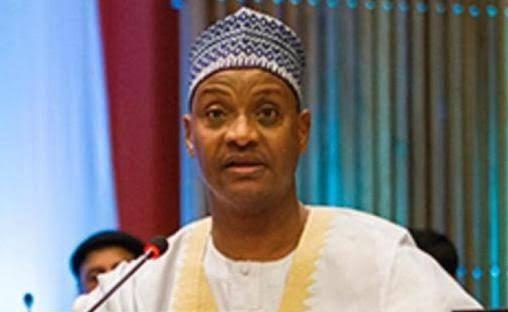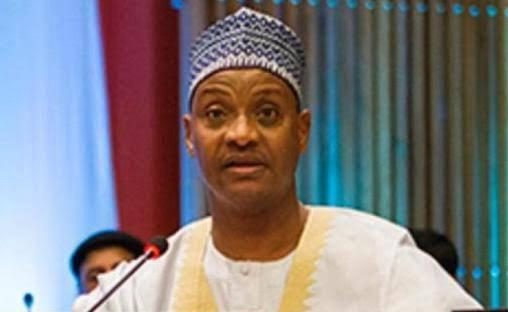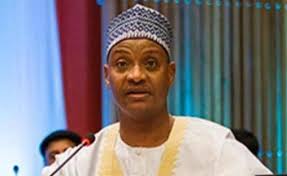I believe it is necessary that Nigerians should pause for a while and collect their thoughts even in the stress of day-to-day living, and reflect on the governance situation to find ways by which better use can be made of every available opportunity to improve their conditions. I also believe that the bane of many of us is the perception that modernity and progress are one and the same thing, and that they only come about by rejecting inherited values and systems and substituting them with the so-called modern systems of governance.
The fact that the traditional system also has its merits and consisted of the separation of powers of the executive, the judiciary and legislative arms, does not seem apparent or important enough to many of us.
The ethics, ethos and values that established and sustained the traditional system were also perhaps seen as tenuous and insubstantial, therefore of little relevance in modern requirements of the country. These thoughts may be admissible but they also fall short of the ideal since they remain to prove the inadequacies of the traditional system and convincingly demonstrate that it should no longer play any direct or substantive role in the governance and administrative structures of the country.
I believe these were some of the considerations that convinced the Political Bureau that was established by former President Ibrahim Badamasi Babangida in 1987 to fashion out a political system for the country. The Bureau emphatically rejected any direct or substantive roles for the traditional authorities on the grounds that they were not elected and that they represented a caste or class-based dispensation.
That may be so, but they did serve to represent the grassroots so to speak in more persuasive and acceptable manner than the apparently modern political arrangements in the country. What we are offering here is neither an apology nor a justification for the wholesale return to the old pre-colonial system of governance across the board. What we are suggesting is to give further thought to the idea that the traditional system also had some merits and continuing with its better aspects could have added more advantages in the dispensing of services in areas like the administration of justice, maintenance of law and order, land tenure systems, the extension of basic education and effective revenue generation among many other functions that could be devolved on the system.
It is in this light that I recall the wise advice that Mr. Morel gave the British colonial administration in Nigeria in 1911 when he asked: “Will they be brought to understand all that is excellent and of good repute in this indigenous civilization; to realize the necessity of preserving its structural foundations, of honouring its organic institutions, of protecting and strengthening its spiritual agencies”?
This sympathetic understanding of the utility of the traditional system shown by a foreigner 114 years ago contrasted sharply with the terminal and dismissive consideration of the same institution by Nigerians in 1987 when they submitted in the Political Bureau report that “as regards traditional rulers, we cannot see in which way their inclusion can provide a unifying force… they compete against the nation for allegiance, represent a force against the principle of popular democracy and are dysfunctional reminders of national differences.”
Let Nigerians judge for themselves if their country would not be better served by an infusion of tradition and culture in government as represented by the “Native Authority” system, and advocate for its reintroduction in our administrative arrangements. That, to my mind, would be a better and more rewarding exercise than some of the perennial issues that are raised by some Nigerians with regards to alterations to our Constitution and “restructuring” the country. Right now we are grappling with the intricacies of democratic governance in the country and seeking ways to advance the purposes of civil rule in all its functions.
The issues of identity, citizenship and what constitutes the “state”, have become central to discourses in our country, especially under the ongoing democratic dispensation. Concurrent with the notion of the state is the idea of the citizen and citizenship which today have become issues of far-reaching significance, and are proving to be the sources of acrimony and disquiet in many communities. Attached to these two principles are the general conduct of politics and governance, and where there is relative peace and quite and happiness, a coincidental convergence of positive attributes in the exercise of sovereign power will have been demonstrated. On the other hand, it can be asserted that where there is a high degree of unease and disquiet in a community or groups of communities, such a convergence of positive ramifications of governance and administration have not been manifested, hence the prevalence of negative trends and tendencies that tend to undermine or circumscribe the tranquility and peace and security of the community or communities concerned.
It is in this sense that the role of the traditional institutions become apparent and more palpable. The traditional system of government may seem as too superficial, loosely arranged and less sophisticated to the casual observer of today. However, when seen from the perspective of longevity, effectiveness and suitability, it can be argued that it received more respect and affection than the system enforced by the British which subsequently metamorphosed into what is obtaining in our country that
The traditional system enjoys a closer sense of affinity and identification than the so-called modern system of government. The idea of loyalty can easily be transferred to the traditional system with the Emir or Oba or Obi or Chief as the case may be, who is seen as a father figure whose right to rule has been affirmed by the practice of centuries and religious affinities.
Hence, rather than remaining distant and aloof from participating in government, the traditional system offers the majority of the people regardless of their identities or origins, the opportunities of active participation in the day-to-day determination of their affairs through their community leaders.


